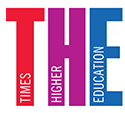New Office for Students strategy also promises action on free speech, sexual harassment and ‘levelling up’
The Office for Students’ new strategy, which is being consulted on, also directs attention to Westminster government priorities such as “poor quality” courses, free speech and geographic inequality, under new chair Lord Wharton of Yarm, a former Conservative MP.
The OfS has courted controversy over the past year by pledging to judge institutions using an absolute baseline on student outcomes, including proportions going into “managerial and professional” jobs, declining to benchmark the metric to take account of student social background. The government has said that it will legislate to give the OfS power to enforce “minimum expectations of quality”.
Some think that the plans are focused mainly on alternative providers and driven by the OfS’s response to a legal challenge brought by the for-profit Bloomsbury Institute, which argued that the regulator had not taken account of its student demographic in withdrawing student loan access over quality concerns.
But others fear that the outcomes measure could be used as a “back-door student number control”, pressuring universities to stop recruiting on courses close to the baseline.
The new OfS strategy puts the idea of a regulatory baseline at the heart of its approach. “During the next strategic period, our work will be strongly focused on ensuring that providers are meeting these expectations. Performance that falls below our regulatory baseline fails students, who contribute through their time, effort and fees. It fails taxpayers, who support a significant investment of public funds through grants and subsidised loans,” a consultation document says.
The document says that the OfS will focus between now and 2025 on quality and standards, and equality of opportunity. On quality – and the minimum standards that the OfS is consulting on separately – the OfS says that it expects “an increase in our investigative and enforcement activity from the first year of the strategy, with courses that do not meet our requirements being improved or closed”.
The OfS says that it also expects more investigation and enforcement relating to free speech on campus, if Parliament passes the Higher Education (Freedom of Speech) Bill.
The strategy says that the OfS wants to ensure graduates contribute to the government’s “levelling up” agenda designed to tackle regional inequality.
And the OfS says it expects to use its enforcement powers where providers fail to prevent and respond effectively to cases of harassment and sexual misconduct.
But beyond its baselines, the document says “autonomous providers making their own decisions is the best way to ensure the sector can flourish and innovate. We do not prescribe how universities and colleges should operate beyond our minimum requirements, and most of our activity will be designed to ensure that providers meet these expectations.”
Writing in the consultation’s introduction, Lord Wharton says that the strategy “signals a step-change in our focus and impact”.
“We can be proud of much of the higher education on offer in England, and for those universities and colleges we will seek to reduce regulatory burden so they can flourish in doing what they do so well, unencumbered by unnecessary bureaucracy,” Lord Wharton writes.
“But for those universities and colleges that are letting students down by providing inadequate teaching and support, leading to weak outcomes, we will be uncompromising in intervening and imposing robust sanctions.”
The strategy was published after Nicola Dandridge, the regulator’s chief executive, announced that she would step down next year.

0 Comments